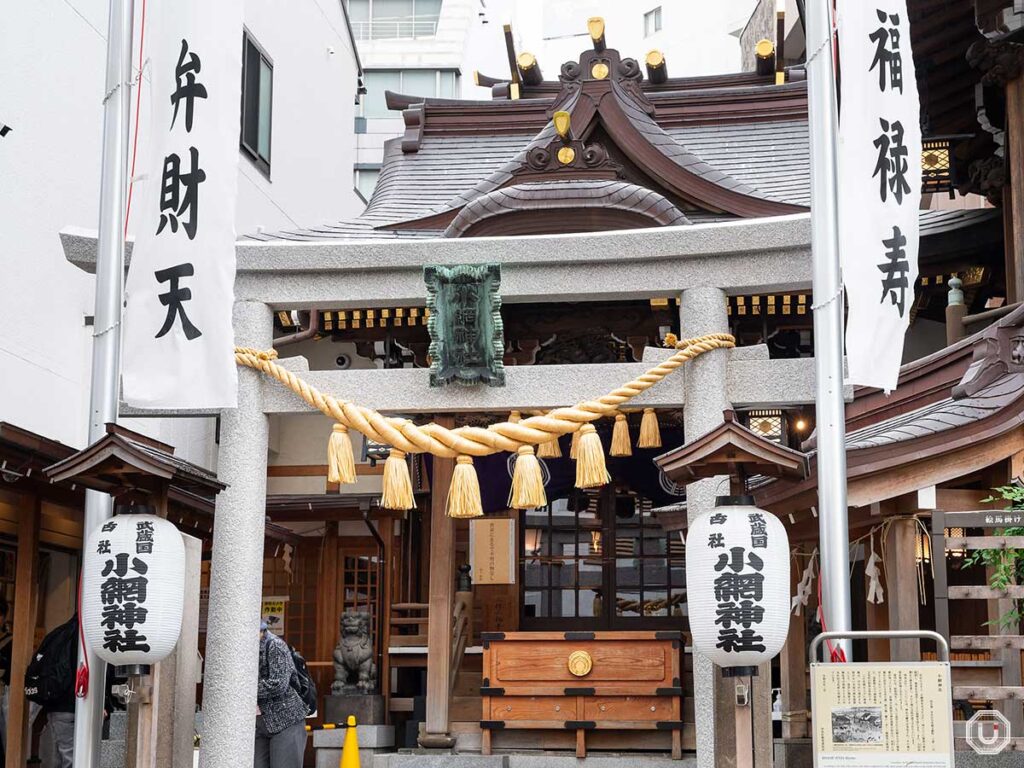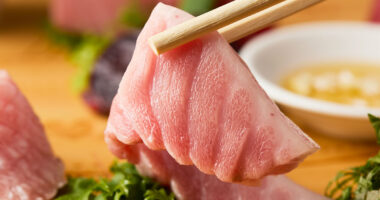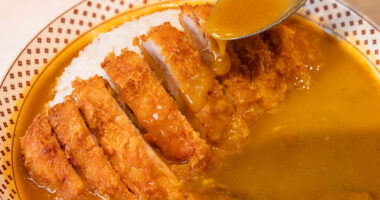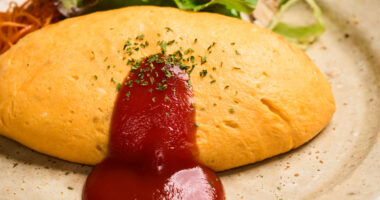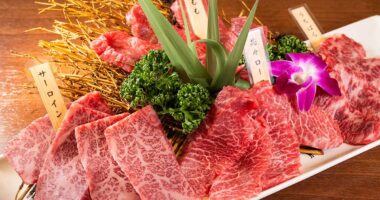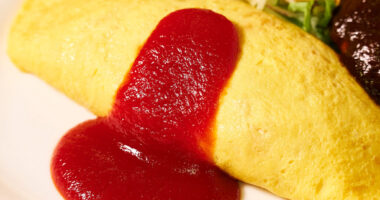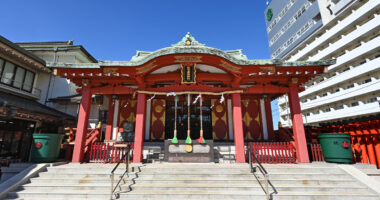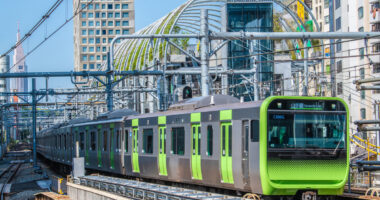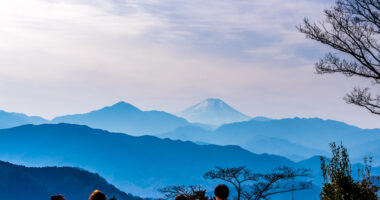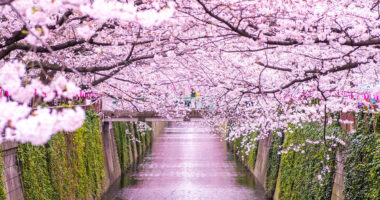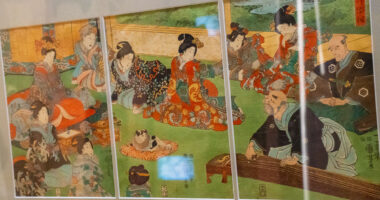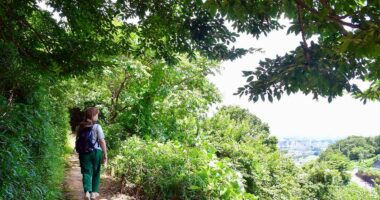Shintoism believes that spirits reside in everything, from mountains and rivers to even household furniture. The benefits bestowed by the deities enshrined at Shinto shrines are varied, ranging from traffic safety and business prosperity to protection against evil.
Among these, the improvement of financial fortune is one of the most sought-after blessings. Koami Shrine in Tokyo is renowned for its financial blessings.
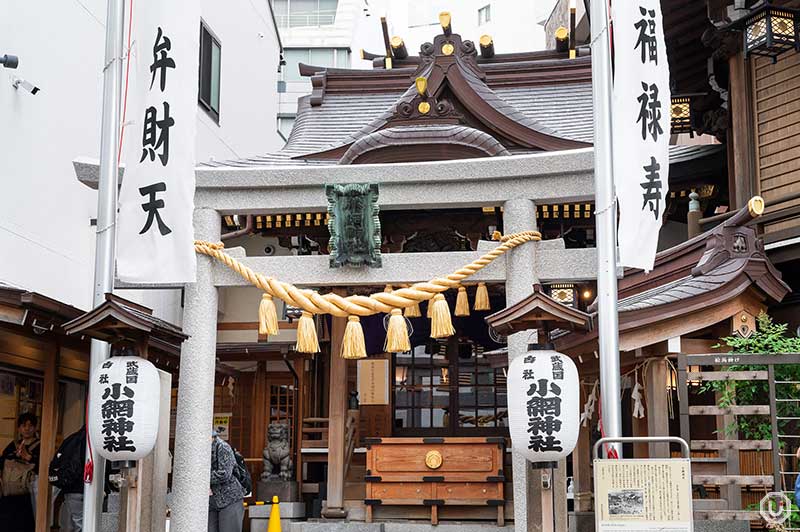
Koami Shrine
Boost your financial luck by washing money at Koami Shrine
Koami Shrine is highly popular, attracting visitors not only from Japan but also from abroad.
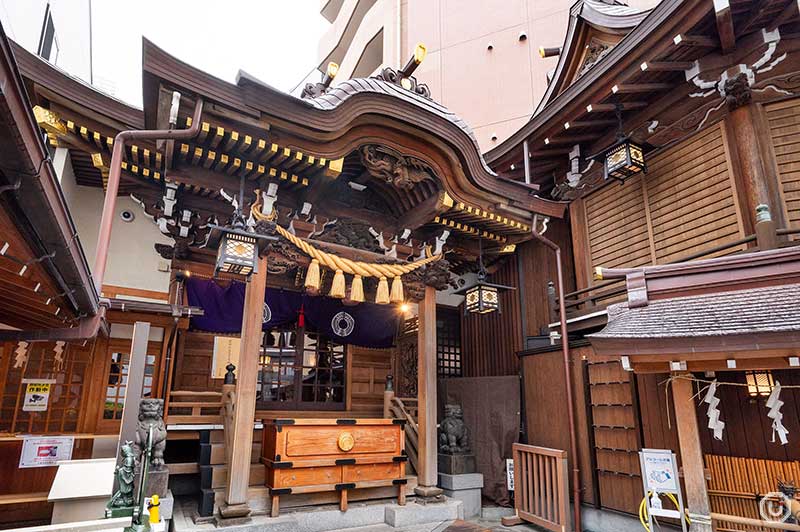
The main shrine building of Koami Shrine
A common practice among visitors after their prayers is to perform zeni-arai, or money-washing. It is believed that washing your money and placing it in your wallet will bring financial fortune.
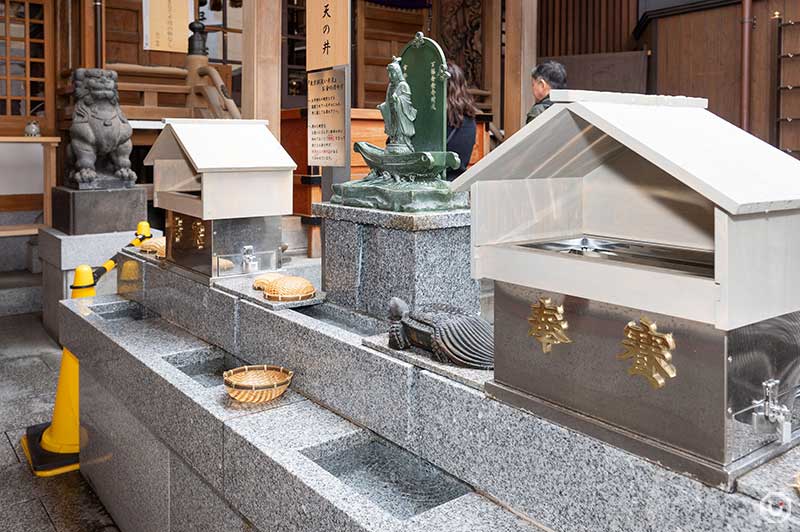
The Money-Washing Well
The place where you can wash your money is situated to the left when facing the main shrine building, at the Zeni-Arai no I (the Money-Washing Well). Visitors place their money in a provided basket, immerse it in water, and wash it.
The key is to keep the washed money in your wallet without spending it.
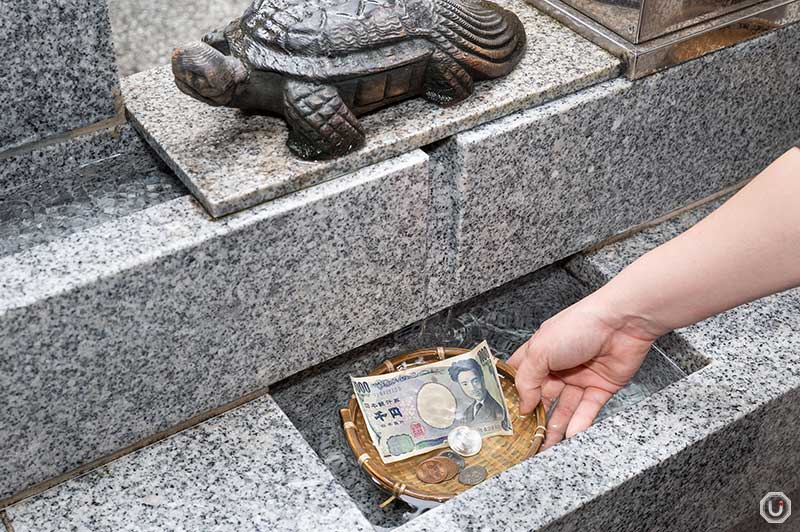
Visitors washing money
Washed money becomes tanesen (seed money), believed to attract more money when kept in your wallet. In addiiton to coins and bills, some visitors even wash credit cards, a scene fitting the modern cashless society.
The Fukurokuju statue bestowing three kinds of blessings
In addition to the Money-Washing Well, Koami Shrine has other spots that are believed to enhance financial fortune. One such spot is the statue of Fukurokuju, the god of virtue.
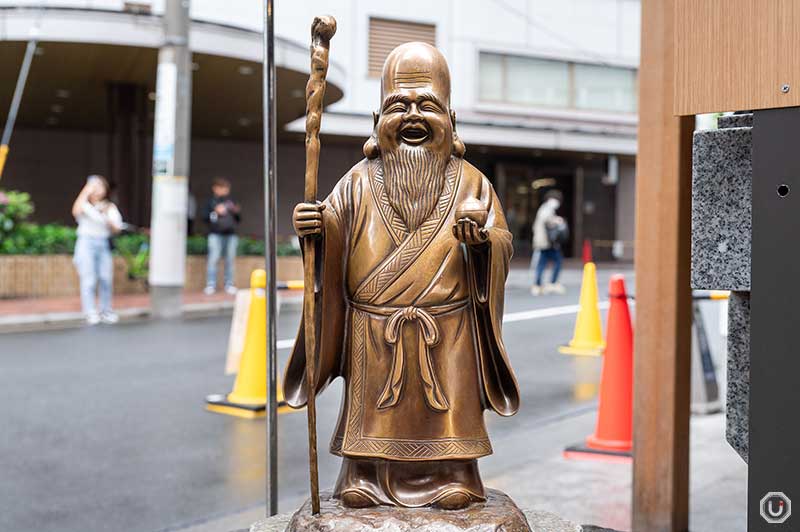
The Fukurokuju statue to the left of the main shrine building
Fukurokuju has been worshipped since ancient times for various blessings, including happiness and financial fortune. Known as a deity of health and longevity, it is believed that touching the statue of Fukurokuju at Koami Shrine brings blessings.
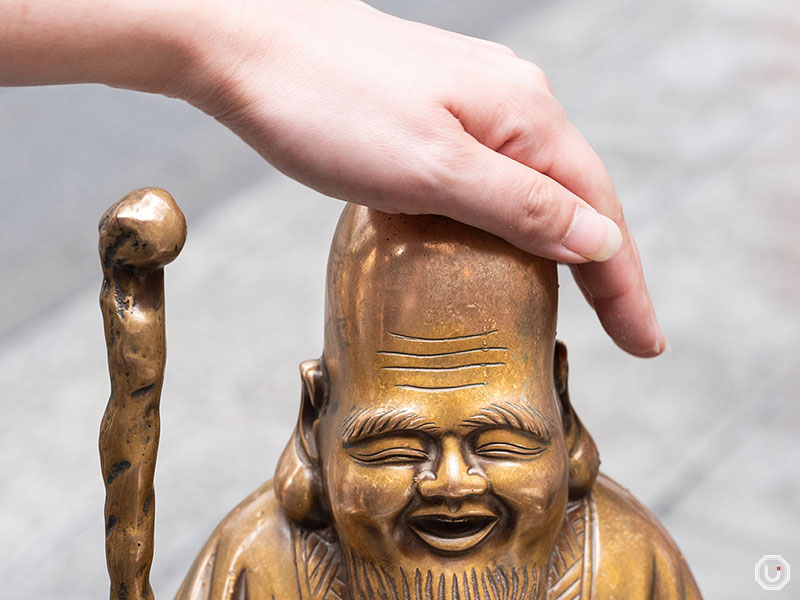
Protective amulets inspired by lucky symbols
Koami Shrine is famous for financial blessings, but it also offers protection against disaster as well as the twin blessings of protection against misfortune and bestowing strong luck. The two dragon carvings visible in the main shrine building symbolize this powerful combination. The noboriryū (ascending dragon) is said to convey the prayers of worshippers to the gods, while the kudariryū (descending dragon) brings the gods’ belssings to the worshippers.
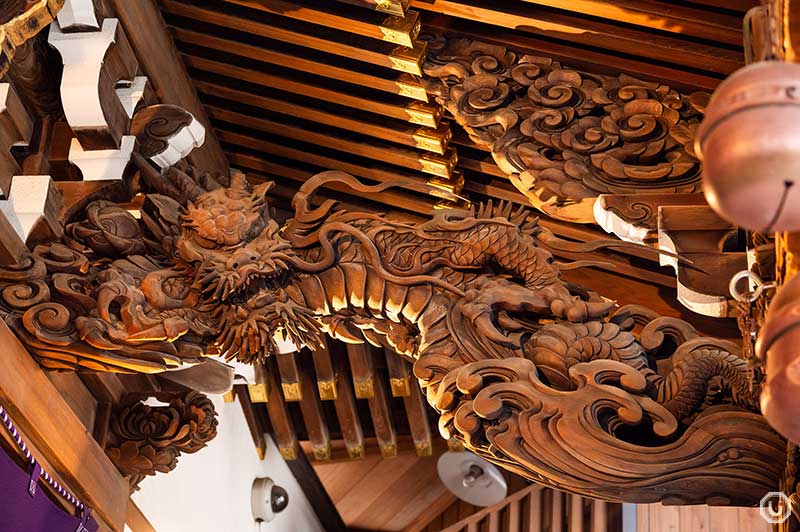
The ascending dragon carving in the main shrine building
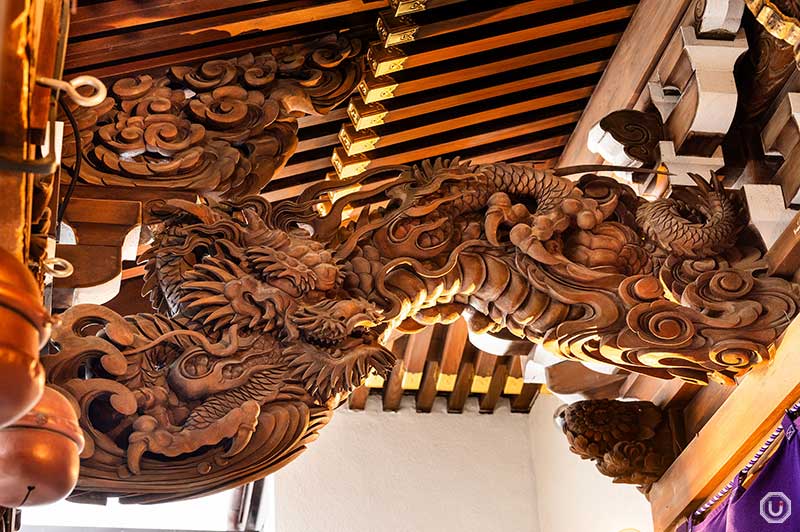
The descending dragon carving in the main shrine building
Popular omamori (protective amulets) at Koami Shrine are those for financial fortune and strong luck. The financial fortune charm features the image of the statue of Tokyo Money-Washing Benten (the goddess Benzaiten), while the protection against misfortune and bestowing strong luck charm is designed with dragons.
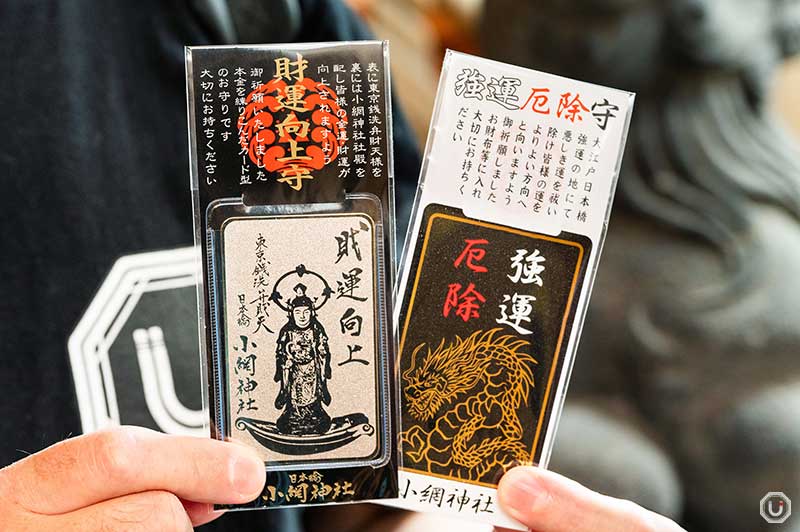
Card-type omamori for financial fortune as well as protection against misfortune and bestowing strong luck
Other notable items at Koami Shrine include omamori and omikuji (paper fortune slips) inspired by auspicious symbols. For example, the horned owl, a symbol of good luck, appears on both and has charming designs.
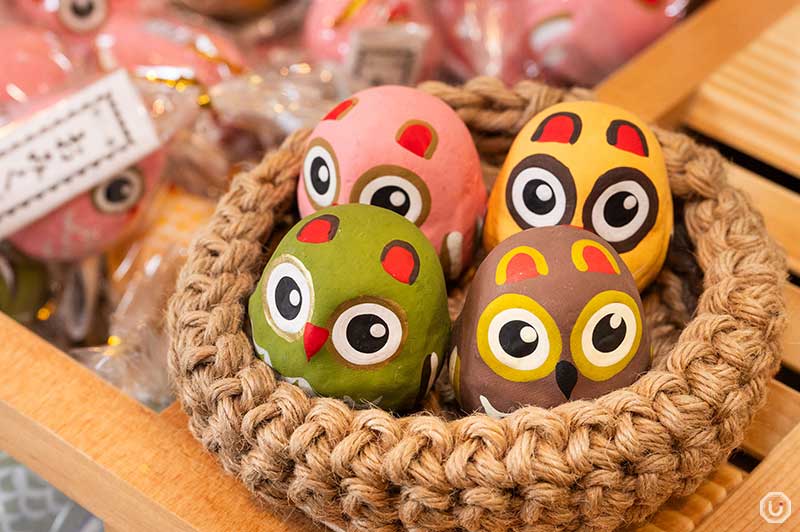
Omamori and omikuji featuring the horned owl, a symbol of good luck
The round mayudama omikuji uses real cocoons. Since a cocoon is spun from a single thread, it symbolizes the hope for a long-lasting connection with the deities, as strong and continuous as a single thread.
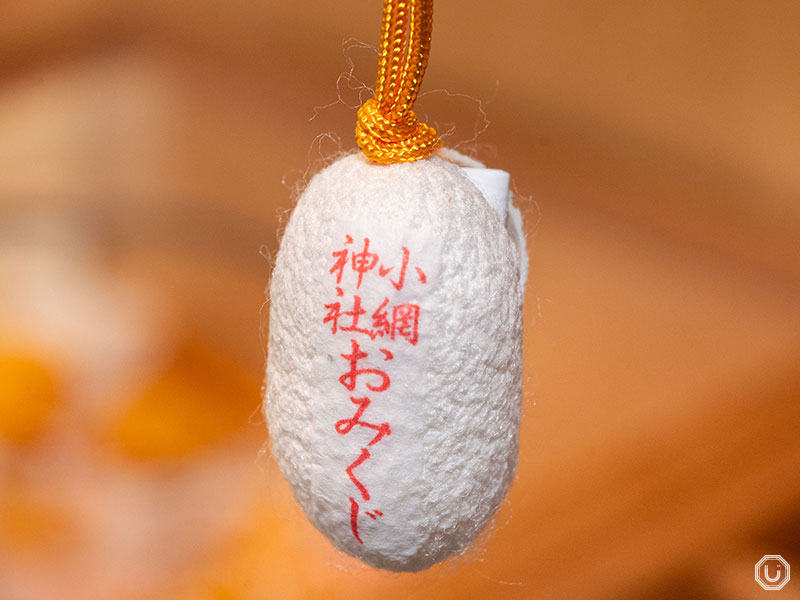
The mayudama omikuji with a fortune slip inside a cocoon
Beautiful goshuin featuring paper-cutting art at Koami Shrine
Goshuin, special seals received at Japanese shrines and temples, serve as a record of one’s visit and vary in design depending on the place of worship. Koami Shrine offers a unique kiri-e (Japanese paper-cutting art) goshuin for 1,000 JPY.
The intricate kiri-e design is so artistic and beautiful that you may feel like you’re receiving blessings just by admiring it. For those preferring a simpler design, goshuin without kiri-e are available for 500 JPY each.
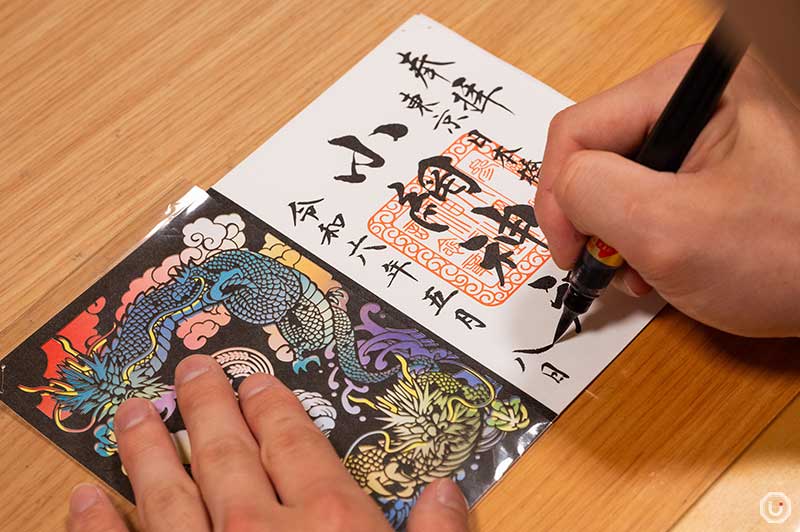
Goshuin with a kiri-e design being inscribed by a shrine official
Koami Shrine also offers its own specially designed goshuinchō (booklets designed to hold goshuin seals). The popular ones feature dragons on the cover, symbolizing protection against misfortune and bestowing strong luck. These goshuincho come in different colors, with yellow being particularly popular.
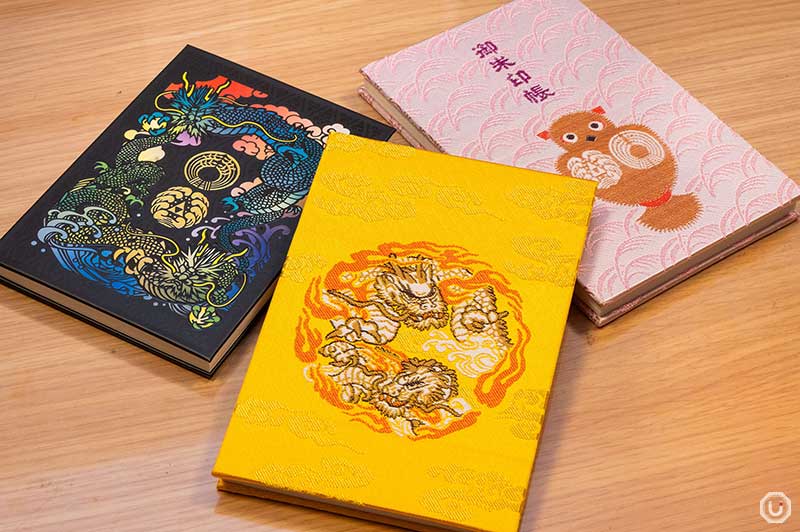
Dragon goshuincho (center) and horned owl goshuincho (right) are available in different colors
Expect crowds on weekends at Koami Shrine
Koami Shrine is built on a compact site, and even with just 20 visitors, the grounds can feel crowded. Due to its reputation for enhancing financial fortune, Koami Shrine is a popular spot.
On weekends, it is not uncommon to see long lines, with waits exceeding two hours. To avoid the crowds, visiting on weekdays is recommended. Additionally, both shrine visitation and zeni-arai are available at night.
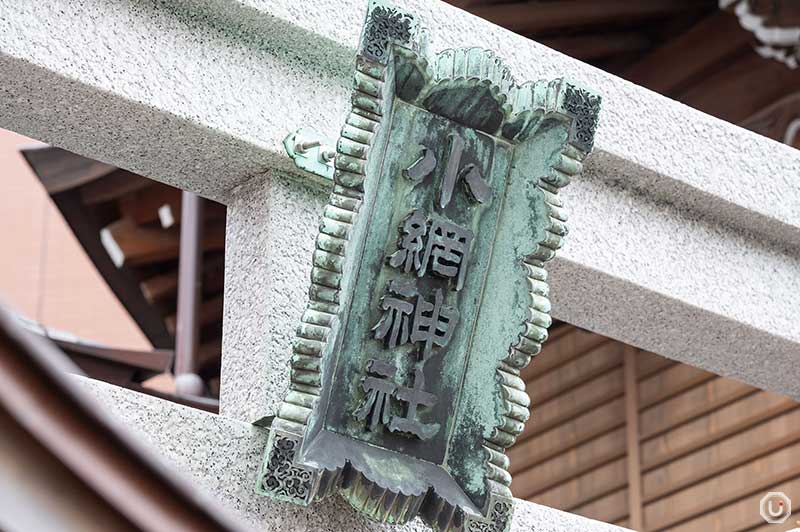
Koami Shrine is known not only as Tokyo’s top spot for financial blessings but also as one of the top spots in all of Japan. The large number of people who visit the shrine all year long surely attests to the efficacy of the blessings it provides.
Shrine information
| Name | 小網神社 Koami Shrine |
|---|---|
| Address | 16-23 Nihonbashi Koamicho, Chuo-ku, Tokyo
|
| Access |
Ningyocho Station 3-minute walk from Ningyocho Station Exit A6
Suitengumae Station 6-minute walk from Suitengumae Station Exit 6 |
| Phone number | 03-3668-1080 |
| Visiting hours | 24 hours |
| Sacred items | Available from 9:00 to 17:00 |
| Goshuin | Available from 9:00 to 17:00 |
| Omikuji | Available from 9:00 to 17:00 |
| Admission fee | Free |
| Official Website | https://www.koamijinja.or.jp/ |
| Other information |
|
※The information in this article is current as of May 2024.
